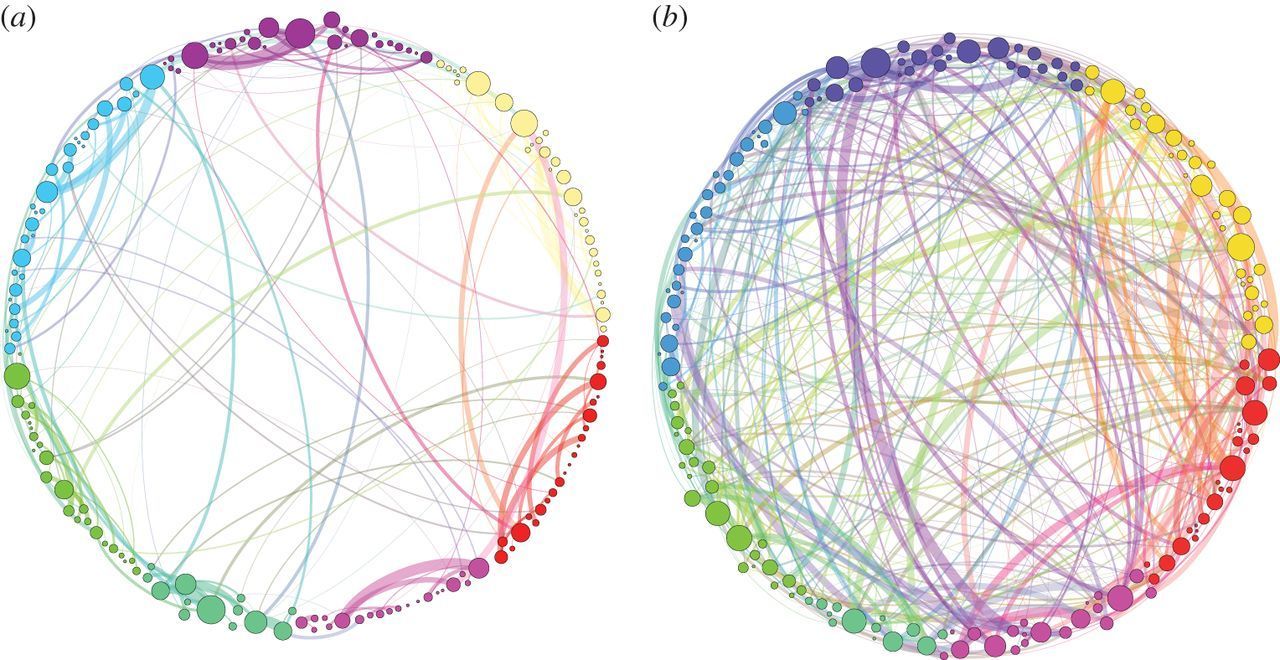Psychotherapy and Why Most Should Try 💔

Due to obvious mental health problems I resorted to psychotherapy. After many years of domestic violence, emotional manipulation and mental abuse I got addicted to methamphetamines and MDMA at the age of 17. I took my first steps towards sobriety in 2018 and I kept it that way for over 7 years 🙌! I hesitated to see a professional for a long time due to my misconceptions of what psychotherapy is. I heard that friends were prescribed medication, which was the number one reason I abstained from giving it a try. Although medication does wonders for some, I have a rather strong inclination towards substance abuse. The most prescribed medication for mental health issues according to NIMH are benzodiazepines (1). I believe that the use of any sort of medication, in my case, would have made the situation worse rather than better. I needed to find tools to manage myself internally, not look for solutions outside of myself. There were traumas, which if left unaddressed, would have affected my life whether on benzos or not.
On the neurobiology of benzos, serotonin and GABA & why benzos would have ruined me
Benzos affect our brain via neurotransmitters such as the infamous serotonin and gamma-aminobutyric acid (GABA) (2) . Serotonin strongly modulates mood and well being, furthermore it plays a big role in regulating the circadian rhythm (sleep-cycle). Serotonergic (a synapse is serotonergic if it uses serotonin) neurons can be found all over the brain. That is also partly the reason why psychedelics such as magic mushrooms (which bind on serotonin receptors) increase the neural connectivity in the brain and can cause feelings of time slowing down (3,4).

Serotonin is also the compound released after MDMA ingestion. GABA is the main inhibitory neurotransmitter in the brain. When released it usually results in sedation, which in example poses potential for therapy of anxiety disorders (5).
I assume that anxiety and depression have their merit. There is most likely a reason for an individual to be anxious or depressed, hinting at insufficiencies of the lifestyle the person is living or at a potential chronic disorder that needs treatment (please be ware that I am simply stating my opinion here). For me that was definitely true and if I took medication which sedates me, I might have overlooked the issues which needed to be addressed. That would have greatly slowed down my healing process.
How does one know they need therapy?
My take is that everyone should have a psychotherapy session for at least a month once in their lives.
"Why?"
When we are born, there is no manual. Neither for your body nor your mind. We are forced to somehow figure out the healthiest and most efficient way to function ourselves, whilst attempting to be a decent part of society. With the emergence of social media a huge anxiety and depression was set forth (6). Furthermore, a conservative study of worldwide PTSD occurrence claims that 70% of individuals experienced life-time traumas (7).

Conservative meaning that some percentage was lost due to privacy concerns, social acceptance etc. My experience is that when sitting in a room with 4 young people, 4/4 will have a small anxiety fit when the conversation goes silent for longer than half a minute. Now, why is it an issue when people are silent? Isn't it nice to just hang out, without the need to utter words? Could it be that the voices in our heads are in charge most of the time? Now when you look around yourself it is very likely that one or the other of the people you know are experiencing some sort of psychological suffering. Furthermore, in my opinion basic knowledge in physiology and neurobiology is required. How does one know what foods are inhibiting his well being? How does one know how his brain is affected by the choices he makes? Of course other fields such as mindfulness (how is one aware that he knows) and physiotherapy (how is my body adding to my suffering) need to be addressed as well but that I will leave for another article.
If you feel like giving psychotherapy a try but you do not have the opportunity, due to too long waiting times or simply a lack of psychotherapists in your area, you can consider giving BetterHelp (<— click there to get a 2 week free trial from me, I do not receive anything for it, saving you approximately 70-100 € ) a try.
What is psychotherapy like?
This is very dependent on the psychologist you find. There is different psychotherapy approaches but I can give further information on the CBT (cognitive behavioural therapy) approach, since it is the only one I have experience with. It is based on attempting to change your behaviour by helping you develop tools to manage the problems you are facing. The "in the moment" process looks like this: 1. trigger 2. awareness and 3. analysis. Triggers are when some occurrence around you, causes you to feel anger, pain or other unpleasant feelings, subsequently you behave in a way that you do not desire (screaming, throwing things, crying, closing up etc.). Awareness means the necessity of mental clarity to identify the event as a trigger, in order to work on it. Analysis corresponds to the investigation of why you felt the way you did and where the pain (which is the primary emotion most of the time) stems from. However, the analysis step is very uncomfortable and requires you to sit with the pain and open doors in your mind which part of you does not want to happen. The analysis part can be taken further by application of journaling practices. That is done by writing questions for yourself, about the pain and its source, which afterwards is consulted with the therapist. Together you will reason what the things you found might mean and how to tackle the issue. But mostly, for me, the bare knowledge of why you are broken is already enough to help abstain from misbehaving.
"Oh yeah, I was abandoned by everyone I knew *cries*, that is why I feel so terrified right now... well, what to do...? Stay alone until I die or be brave enough to give this person a chance? I do not like the easy way out. *Sigh* Fine."
This process repeats itself. You get triggered by the same thing over and over, however with every cycle the response gets shorter and less intense. That is because you felt the pain, understood and integrated it.
This approach is best combined with meditation practice, since it requires awareness of your trigger, which meditation helps you acquire.
As mentioned above, there is different approaches to tackle mental health issues, which are maybe worth giving a shot.
Summary
We are currently in a mental health pandemic (1,6,7). Psychotherapy is by some still seen as something for "sick" people. Most feel insecure and ashamed to admit that they are seeing a psychologist. Also, misconceptions what therapy is are holding people back from giving it a try. However, I believe that not everyone is ready for therapy at all times. It requires reserved energy to face all the pain and demons inside. On the other hand it requires energy to live and be triggered all the time, which results in suffering. Therapy will suck the life out of you and if done right it will revive you stronger, more stable and happier. If you are ready for a transformation and you are sick of being slowed down by your past, give it a shot.
Thank you for reading. If you are interested in more psychology related topics, stay tuned. I will soon give a full report on my experience and dive in on things such as: bonding, insecurities and judgment.
References
1) National Institute of Mental Health (2022). Mental health medications. Retrieved Mai 13th, 2022, from: https://www.nimh.nih.gov/health/topics/mental-health-medications
2) Bertilsson L. Mechanism of action of benzodiazepines - the GABA hypothesis. Acta Psychiatr Scand Suppl. 1978;(274):19-26. doi: 10.1111/j.1600-0447.1978.tb02383.x. PMID: 216234.
3) Tagliazucchi, E., Carhart-Harris, R., Leech, R., Nutt, D., & Chialvo, D. R. (2014). Enhanced repertoire of brain dynamical states during the psychedelic experience. Human Brain Mapping, 35(11), 5442–5456. https://doi.org/10.1002/HBM.22562
4) Petri, G., Expert, P., Turkheimer, F., Carhart-Harris, R., Nutt, D., Hellyer, P. J., & Vaccarino, F. (2014). Homological scaffolds of brain functional networks. Journal of the Royal Society Interface, 11(101). https://doi.org/10.1098/RSIF.2014.0873
5) Sahab, N., Subroto, E., Balia, R. L., & Utama, G. L. (2020). γ-Aminobutyric acid found in fermented foods and beverages: current trends. Heliyon, 6(11), e05526. https://doi.org/10.1016/j.heliyon.2020.e05526
6) Amandeep Dhir, Yossiri Yossatorn, Puneet Kaur, Sufen Chen,
Online social media fatigue and psychological wellbeing—A study of compulsive use, fear of missing out, fatigue, anxiety and depression, International Journal of Information Management, Volume 40, 2018, Pages 141-152, ISSN 0268-4012,
https://doi.org/10.1016/j.ijinfomgt.2018.01.012.
7) Kessler, R. C., Aguilar-Gaxiola, S., Alonso, J., Benjet, C., Bromet, E. J., Cardoso, G., Degenhardt, L., de Girolamo, G., Dinolova, R. v., Ferry, F., Florescu, S., Gureje, O., Haro, J. M., Huang, Y., Karam, E. G., Kawakami, N., Lee, S., Lepine, J. P., Levinson, D., … Koenen, K. C. (2017). Trauma and PTSD in the WHO World Mental Health Surveys. European Journal of Psychotraumatology, 8, 5. https://doi.org/10.1080/20008198.2017.1353383/SUPPL_FILE/ZEPT_A_1353383_SM3527.PDF

Member discussion